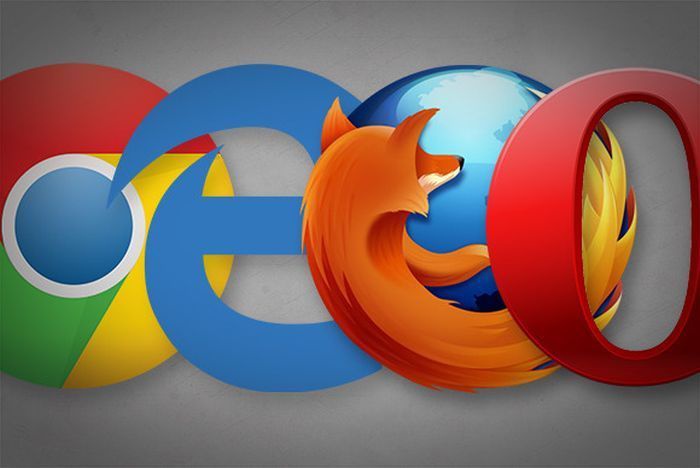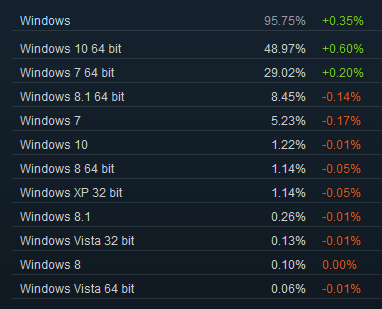Browsers: time to sum up 2016

In early 2016, Internet Explorer, Microsoft’s browser, was still the most popular browser. So, at the end of 2015 - the beginning of 2016, 46% of Internet users worked with it. 32% used Chrome and 12% used Firefox from Mozilla. However, the days of Internet Explorer are numbered due to the fact that Microsoft itself abandoned the development of its browser. So far, updates for it are coming out, but the development of new functions was discontinued in 2015 in favor of the new Edge browser. This browser is more secure, its functionality is higher than that of Internet Explorer. But it has one drawback - it is available only for users of Windows 10, respectively, the audience of this browser is quite limited.
The picture described above in terms of browser market share has changed dramatically by the end of 2016. For example, the market share of the Chrome browser has grown to 56%. The equivalent figure for Internet Explorer fell to 21%. Edge approximately doubled its own market share to 5.3%, which is not surprising given the aggressive Microsoft policy regarding the promotion of its Windows 10 operating system. By the way, in early 2016, the market share of this OS was about 10%, and here at the end - already 24%.
On Geektimes, various techniques that Microsoft used to promote its operating system were repeatedly described. Some of them are too tough - the company itself recognized this a couple of months ago. However, all this has borne fruit. It is worth noting that among Steam users, the share of Windows 10 was about 50%. At the same time, the market share of Windows 7 has fallen, and quite significantly.
')

As for browsers, since the 90s of the last century, none of them showed such a rapid decline in market share (in the 90s it was Netscape Navigator). But the reasons for this are clear and described above.
It seems that only 22% of Windows 10 users decided to choose Edge as their native browser. The rest either continue to use the familiar Internet Explorer, or use browsers from Google and Mozilla. Nevertheless, the market share of this browser continues to increase, and not only because it comes by default with the operating system from Microsoft. The fact is that Edge developers really try to make this browser “usable”. In particular, it is now compatible with extensions from Chrome and Microsoft. Of course, it’s impossible to call it ideal, and competitors are still favorably distinguished by various functions, including the convenience of working with tabs and saved passwords (experts, at the same time, do not advise storing passwords in any of the browsers).
The market share of Firefox has not changed significantly. Now it is 12%. By the way, in August, for some reason, this figure dropped to 8%, but then increased again, Mozilla managed to catch up. In many ways, this was achieved thanks to the efforts of the developers - in particular, they introduced a function that prevents the entire program from falling if any of the tabs crash. Problems still exist, and in terms of security, according to experts, Firefox is inferior to the same Chrome, Safari or Edge.
Of course, on Chrome, Edge or Firefox, the light did not come together. Do not forget about the browser Opera, whose market share hung at about one percent. In light of what happened, it’s not so bad for the browser. So, do not forget that Opera Software was divided into several companies at once in November. A consortium of Chinese companies, Kunqi, bought Opera Software, and Opera Mediaworks, Opera Apps & Games (including Bemobi), and Opera TV were excluded from the list of assets sold. The Chinese got a mobile browser, desktop browser, performance and information security software, as well as the Opera brand and trademarks.

Now Opera is no longer what it was until 2013. The fact is that the developers have decided to start using the Blink engine based on WebKit, which is used by Chrome users. By the way, a number of ex-employees began developing their own browser based on the principles of the “old” Opera. In 2016, they released the first version of the Vivaldi browser. It is also based on Blink, but the browser interface is much easier to modify than the original Opera.
Now Vivaldi is developing, and the new version, 1.7, saw the light. Developers position their browser as a system for advanced users who need a powerful, customizable tool. The market share of this browser is still minimal, and there is no reason to talk about any serious figures.
The second browser market is Brave Browser, which was released by Mozilla co-founder Brendan Eich . He invented JavaScript. There is an interesting moment in this browser - it blocks ads on sites, replacing it with ads of its own advertisers. At the same time, ad revenue is shared between Brave, ad networks and browser users. Brave, like Vivaldi, has not yet occupied a significant market share.
Perhaps in the new year, new browsers will be able to change something, but, of course, there will be no cardinal change of players here. Chrome is likely to receive all new users, and Internet Explorer will soon become a ghost.
Source: https://habr.com/ru/post/373039/
All Articles